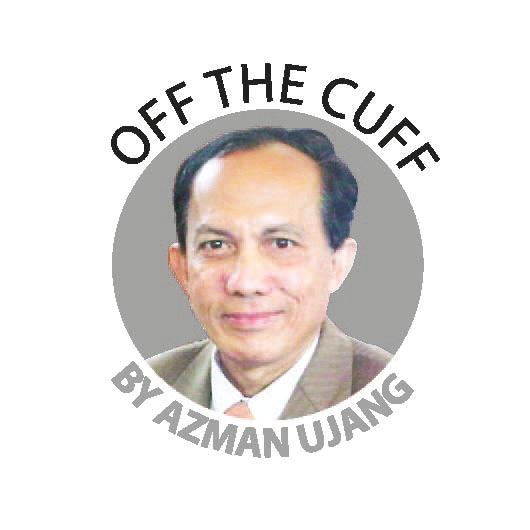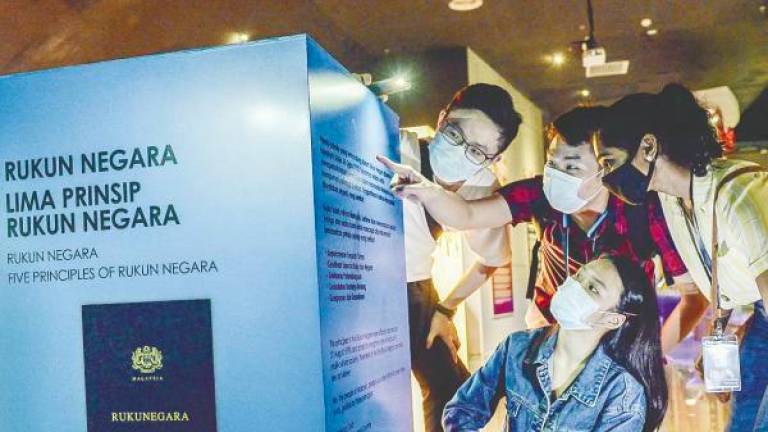EVERY time a general election is round the corner, Cuepacs, the umbrella body of Unions of Employees in the Public and Civil Services, will be beating the drums for salary revision for civil servants.
With the general election highly expected well before the five-year term of the federal government ends in two years – the popular prediction is that this is an election year – Cuepacs is again beating the drums.
And more often than not, the government of the day would accede to such a “demand” because civil servants account for an important voting bloc, or vote bank.
There are at least 1.6 million civil servants in the nation, described by many as having the world’s most bloated civil service, and if we add their family members and dependents, it’s a huge vote bank indeed.
Cuepacs president Adnan Mat said a salary revision, (note that revision here means a salary hike), is essential to ensure civil servants earn enough to cover living costs.
To be fair, Adnan certainly does not mean all civil servants since tens of thousands in the higher category of posts are very comfortably paid by any standard.
He said the starting salary of the average civil servant should be raised from RM1,200 to RM1,800, in line with the revision of the poverty line to RM2,208. Half of the total strength of the civil service are in Grade 40 and below, where the salary starts at RM1,200.
But Adnan’s call for a pay revision with the impending general election seems very odd this time around. Employees in the private sector certainly would want to describe it as “insensitive” to the realities of the current situation when Malaysia, along with the rest of the world, are battling the Covid-19 pandemic.
Thousands of private sector employees have reportedly lost their jobs when their companies were badly hit by poor business, or none at all, like in the tourism industry, airlines and hotels, this past one year.
On top of that, practices like retrenchments, having employees on unpaid leave or salary cuts to sustain operations are commonplace, and here we have Cuepacs asking for a pay hike.
In sharp contrast to their private sector counterparts, there is no such thing as retrenchment, unpaid leave, salary cuts whatsoever for the civil servants, who are also getting their annual salary increment as well for those deserving ones.
Former top civil servant Tan Sri Mohd Sheriff Kassim has shot down the move by Cuepacs, saying a salary revision should only be possible if it is accompanied by structural reforms in the size of the administrative and support services at the federal, state and district levels.
“The result of government salaries growing faster than revenue collection is that the fiscal deficit is growing bigger and the development budget has to be, therefore, trimmed down to avoid massive increase in federal government borrowings,” Mohd Sheriff, who was a former secretary-general of the Finance Ministry, told me.
In such a situation, the public ends up the loser as there will be less money for building new schools, hospitals, roads and bridges, among other things.
He said to avoid such constraints on the federal budget, the government in early 2000s turned to new methods of private sector participation in funding and implementing public sector work projects.
But the previous government found that there were abuses in adopting these off-budget methods of implementing projects.
“Of course, civil servants will say all these weaknesses are not relevant to their concern over rising costs of living. True, but a responsible government must look at the bigger picture before deciding on a new round of costly salary revision,” said Mohd Sheriff.
Another ex-top civil servant, Tan Sri Ramon Navaratnam, said the government had enlarged the civil service workforce without even giving enough consideration for the need to evaluate productivity.
The former secretary-general of the Transport Ministry said in all fairness, civil servants should have a report card on their performance that should be made public whilst Cuepacs, in wanting the government to raise salaries, should also explain how productivity can be increased.
But one thing is very clear indeed. The government just cannot afford to further increase substantially the wage bill for civil servants and the bill for government pensioners.
Paying these two categories of people is already one of the biggest financial headaches of the government, a former finance minister once told me.
Yes, it is a populist move prior to any general election but like Mohd Sheriff rightly pointed out, we have to look at the bigger picture. Just a few days ago, Prime Minister Tan Sri Muhyiddin Yassin declared that: “We don’t have much money left.”
He said Putrajaya’s coffers are depleting after the government allocated over RM600 billion in Budget 2021 and other stimulus packages to help Malaysians
weather the Covid-19 pandemic.
In fact, to me the government instead could look into trimming the civil service by reviewing if some of the departments or agencies that were set up in the years gone by under different needs and circumstances are still relevant or needed.
An austerity drive is absolutely in order to reset the nation’s priorities, moving forward.
Comment: letters@thesundaily.com













